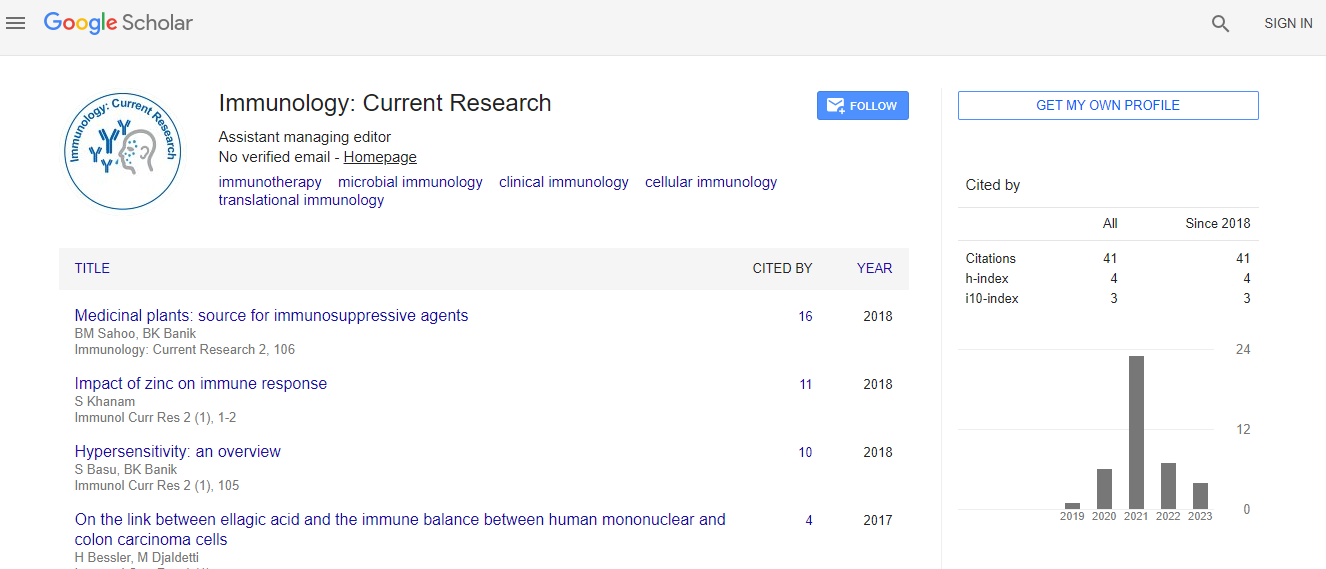Mechanisms of Antibody-Mediated Immunity: The Functions of IgA, IgD, IgE, IgG and IgM in Pathogen Defense and Disease
*Corresponding Author: Shun Yuechao, Institute of Traditional Chinese Veterinary Medicine, College of Veterinary Medicine, Nanjing Agricultural University, China, Email: scaisnnd4778@gmail.comReceived Date: Jul 01, 2024 / Published Date: Jul 31, 2024
Citation: Shun Y (2024) Mechanisms of Antibody-Mediated Immunity: TheFunctions of IgA, IgD, IgE, IgG and IgM in Pathogen Defense and Disease.Immunol Curr Res, 8: 208.
Copyright: © 2024 Shun Y. This is an open-access article distributed under theterms of the Creative Commons Attribution License, which permits unrestricteduse, distribution, and reproduction in any medium, provided the original author andsource are credited.
Abstract
Antibody-mediated immunity plays a critical role in protecting the body from a diverse array of pathogens. This review explores the distinct mechanisms through which the five major classes of immunoglobulins—IgA, IgD, IgE, IgG, and IgM—contribute to immune defense and disease modulation. IgA primarily functions in mucosal immunity, providing a frontline defense against pathogens at mucosal surfaces. IgD's role remains less well-defined, but it is thought to be involved in initiating and regulating immune responses. IgE is crucial in mediating allergic reactions and defending against parasitic infections. IgG, the most abundant antibody in the blood, is central to systemic immunity, offering protection through various mechanisms including opsonization and activation of the complement system. IgM, the first antibody produced in response to an infection, is key in the early stages of immune responses. This review synthesizes current understanding of the functional roles of these immunoglobulins and their contributions to both pathogen defense and disease pathology. Insights into these mechanisms provide a foundation for developing targeted therapies and vaccines aimed at enhancing antibody-mediated immunity.

 Spanish
Spanish  Chinese
Chinese  Russian
Russian  German
German  French
French  Japanese
Japanese  Portuguese
Portuguese  Hindi
Hindi 
